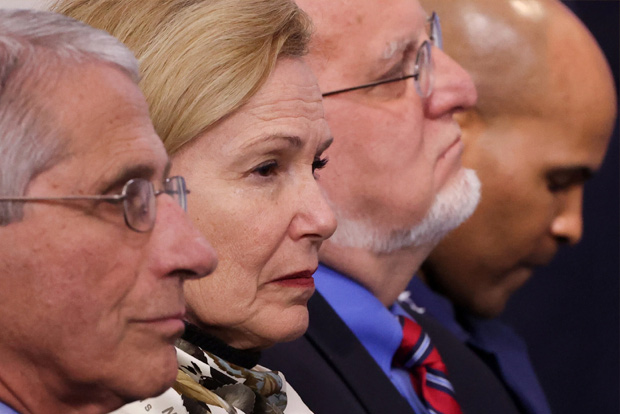Begin typing your search...
Forsaken logic: Growing threat of anti-maskers in the US
As the Ebola epidemic raged in 2014, some West Africans resisted public health guidance. Some hid their symptoms or continued practicing burial rituals — like washing the bodies of their dead loved ones — despite the risk of infection.

Chennai
Others spread conspiracies claiming the virus was sent by Westerners or suggested it was all a hoax. In Conakry, Guinea’s capital city, an imam was arrested for violating his quarantine, and residents protested by not letting health officials check for fevers. So the World Health Organization sent Cheikh Niang, a Senegalese medical anthropologist, and his team to figure out what was going on.
For six hours, Dr Niang visited people in Conakry inside their homes. He wasn’t there to lecture. Residents asked him to write down their stories. When they finished, Dr. Niang finally spoke. “I said, ‘I hear you,’” he told me recently over the phone from Senegal. “‘I want to and will help. But we still have an epidemic spreading and we need your help, too. We need to take your temperatures and we need to trace this virus.’ And they agreed. They trusted us.”
Turns out, the people Dr Niang encountered weren’t selfish or anti-science. They were scared and felt stripped of dignity by officials who didn’t respect them or understand their traditions. What they needed was for someone to listen to them and to feel like they had some agency.
More than five years later, Dr Niang is having flashbacks. Amid a new pandemic, he’s seeing public health officials dispense advice arrogantly, while frustrated populations rebel and endanger others. An epidemic is “a moment of truth between communities, health officials and the overall system of government,” Dr Niang said. “When I see the US on TV, I almost don’t believe it,” he added. It’s a full-blown legitimacy crisis. Only this time it’s happening in the US.
Taiwan is welcoming baseball fans back into stadiums. As of June, more than 20 other countries have begun the process of bringing children back to school. Thailand, a country of 70 million, hasn’t had an instance of local coronavirus transmission in seven weeks, as of last Thursday. And yet Americans are staring down nearly 150,000 virus deaths while governors and health officials pleading with citizens to wear masks are starting to sound like substitute teachers who’ve lost control of the classroom. One indicator of how bad things are: Last week, Anthony Fauci, the US’ leading infectious-disease doctor, felt compelled to reassure his audience during an online talk, “You can trust respected medical authorities.” He added, “I believe I’m one of them, so I think you can trust me.”
Polls suggest that most Americans do still have faith in scientific expertise. A June survey showed that “84 per cent of voters said they trusted medical scientists to provide reliable information about the virus.” That includes 90 per cent of Democrats and 75 per cent of Republicans. But those figures are hard to square with the reality on the ground, where trust in science seems increasingly fragile. That trust is endangered by what many public health experts I spoke with described as a messaging crisis. A big problem, according to Ranu Dhillon, a doctor at Harvard who advised the Guinean president during the Ebola crisis, is a lack of nuance. “All advice ends up binary,” he told me recently. “It’s absolutely one way or absolutely the other way, when it should be shades of gray. It happened with the World Health Organization and denying asymptomatic transmission early on. It happened with masks. And it happened with states reopening.”
Given that this is a novel coronavirus, we’re learning on the fly — things that are true one day might need to be revised the next. Dr. Dhillon suggests that in their desire to be authoritative, public health experts have eroded trust by not accurately communicating uncertainty and by being stubborn about correcting the record when our understanding evolved. He described the strategy as a light switch that toggles on and off only when scientific consensus reaches a certain threshold. What’s needed, though, is something akin to a dimmer. “When we do flip the switch, we rarely admit that we are pulling a 180,” he said.
Charlie Warzel is Opinion writer at large for NYT© 2020
The New York Times
Visit news.dtnext.in to explore our interactive epaper!
Download the DT Next app for more exciting features!
Click here for iOS
Click here for Android
Next Story



